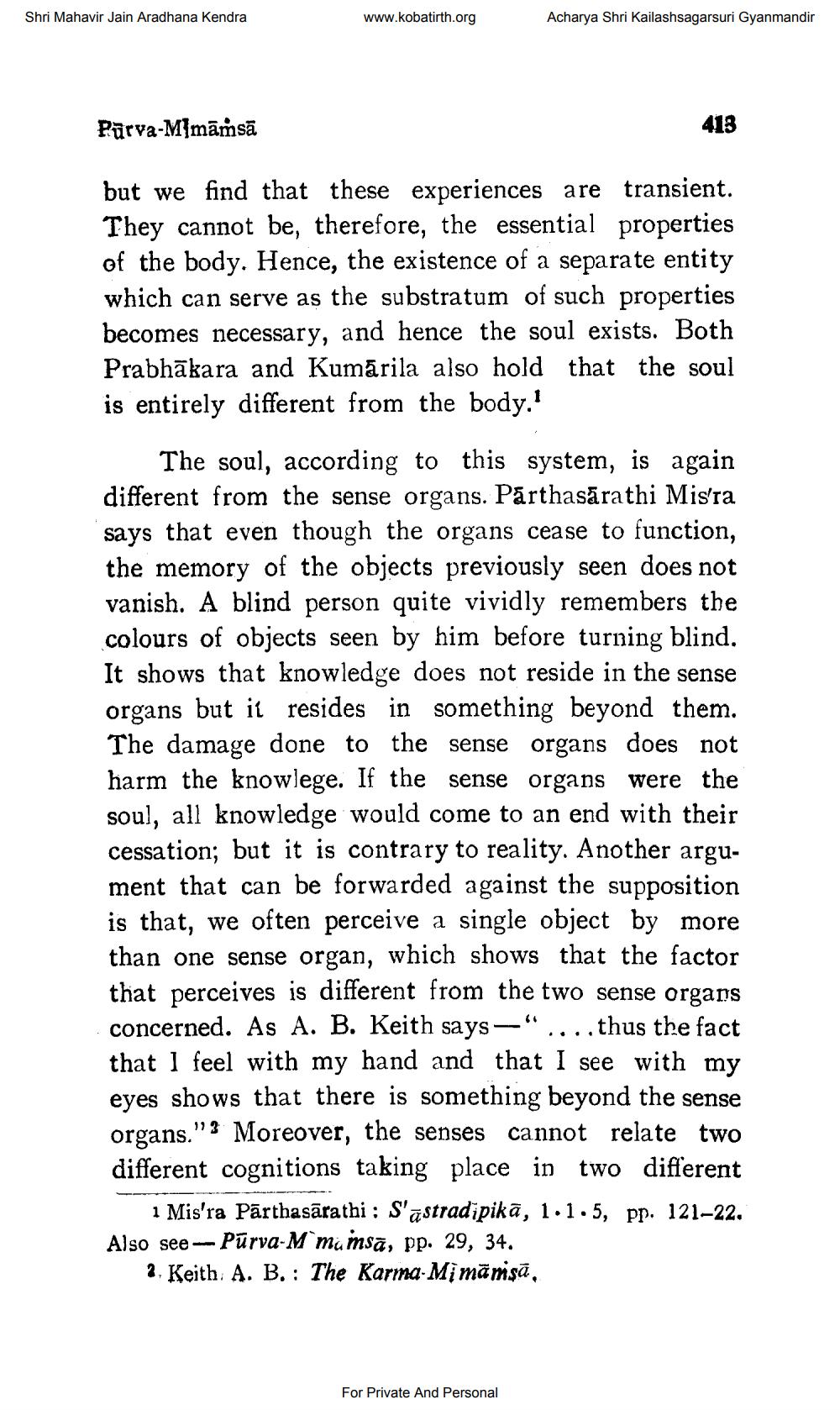________________
Shri Mahavir Jain Aradhana Kendra
www.kobatirth.org
Acharya Shri Kailashsagarsuri Gyanmandir
Pūrva-M]māṁsā
418
but we find that these experiences are transient. They cannot be, therefore, the essential properties of the body. Hence, the existence of a separate entity which can serve as the substratum of such properties becomes necessary, and hence the soul exists. Both Prabhākara and Kumarila also hold that the soul is entirely different from the body.'
The soul, according to this system, is again different from the sense organs. Pārthasārathi Misra says that even though the organs cease to function, the memory of the objects previously seen does not vanish. A blind person quite vividly remembers the colours of objects seen by him before turning blind. It shows that knowledge does not reside in the sense organs but it resides in something beyond them. The damage done to the sense organs does not harm the knowlege. If the sense organs were the soul, all knowledge would come to an end with their cessation; but it is contrary to reality. Another argument that can be forwarded against the supposition is that, we often perceive a single object by more than one sense organ, which shows that the factor that perceives is different from the two sense organs concerned. As A. B. Keith says-“ .... thus the fact that I feel with my hand and that I see with my eyes shows that there is something beyond the sense organs."'3 Moreover, the senses cannot relate two different cognitions taking place in two different
1 Mis'ra Pārthasārathi : S'astradīpikā, 1.1.5, pp. 121–22. Also see -- Pūrva-M`mumsā, pp. 29, 34.
2. Keith A. B. : The Karma Mimāmsā.
For Private And Personal




